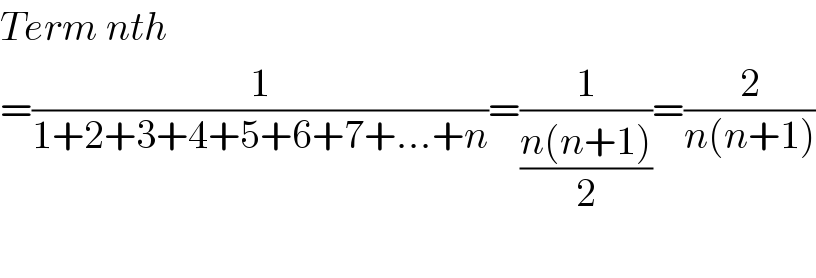
Question and Answers Forum
Question Number 112881 by bemath last updated on 10/Sep/20

Answered by Dwaipayan Shikari last updated on 10/Sep/20

Commented by bemath last updated on 10/Sep/20

Commented by Dwaipayan Shikari last updated on 10/Sep/20

Commented by bemath last updated on 10/Sep/20

